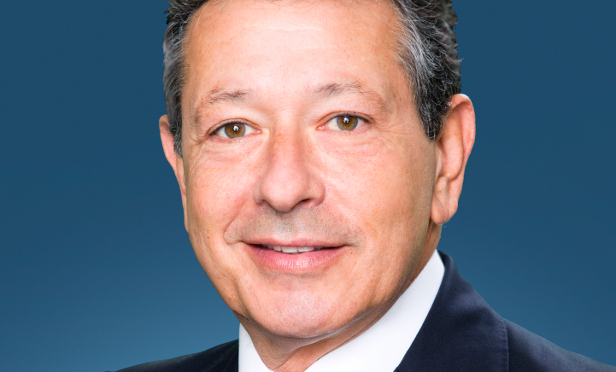
IRVINE, CA—While no one is certain what will happen after the EB-5 extension expires, there are a number of possibilities, including the likelihood that EB-5 gets extended yet again by Congress or that some version of the program gets enacted on a more-permanent basis, Cox Castle Nicholson partners Adam Weissburg and Gregory Karns tell GlobeSt.com. The program, a much-sought-after component of today's development transactions offering green-card status to foreign nationals who invest money in the US, faces an uncertain fate since the short-term extension that Congress granted for the program in September expires Dec. 9. We spoke exclusively with Weissburg and Karns about the EB-5 program as it relates to existing and future real estate development.
GlobeSt.com: What do you expect to happen with the EB-5 program after the extension expires Dec. 9?
Weissburg: At this point, we're not sure what will happen. There are a number of possibilities, including the likelihood that EB-5 gets extended yet again by Congress, or that some version of the program gets enacted on a more permanent basis. Having a permanent structure in place would be preferable, of course, because of the important role this program plays in so much of commercial real estate finance today. This month's election results have raised the level of uncertainty about the program. With Trump elected as president, it's possible that some of the anti-immigration sentiment of his campaign may translate into either political pushback on the program, or in a lack of interest from foreign investors in participating in it.
GlobeSt.com: If the program doesn't continue, what impact will this have on foreign investment in commercial real estate?
Karns: First of all, I don't believe that they'll do away with the program. I think we'll see some changes made to it, but overall, it's a benefit to our economy. During our Great Recession, the EB-5 program helped to fill the gap in financing for a significant number of projects throughout the US. The program has been around for more than 25 years, but it wasn't until other sources of capital became limited that EB-5 started to pick up speed. The program provides funding for new developments with the mandate that the projects create jobs. We saw a lot of investment in hotels, senior housing and hospitals as a result.
In the short-term, even if the program were curtailed, it wouldn't necessarily be a bad thing. In many ways, this program became significant as a result of the severity of the downturn in the economy. We're in a much different point in the cycle than we were seven years ago. Other traditional and alternative sources of financing are becoming increasingly available. Available investment opportunities have become much more complicated, especially for EB-5 investors. In the long run, however, this type of program is always good. It attracts the world's more-productive contributors to society to come to the US and make this their home and their place to do business.

GlobeSt.com: What comparable avenues do foreign investors have for US real estate investment without EB-5?
Weissburg: We are already seeing a growing interest among foreign investors in acquisitions of both assets and companies. For example, over the summer, Anbang Insurance acquired all of the assets of Strategic Hotel & Resorts from Blackstone for more than $6 billion. But, one could anticipate that foreign investors may be turned off by the anti-immigration policies of the new administration.
GlobeSt.com: What else should our readers know about the EB-5 program?
Karns: EB-5 offers a great source of revenue to real estate developers, but having these investors as partners can be challenging. The capital generally becomes available in pieces over a long period of time as various milestones in the immigration process are accomplished. These investors usually have no background or history in US real estate and may not have the ability or understanding necessary to deal with problems that may arise. For this reason, it is important to work with EB-5 promoters with knowledge and experience in US real estate development.

IRVINE, CA—While no one is certain what will happen after the EB-5 extension expires, there are a number of possibilities, including the likelihood that EB-5 gets extended yet again by Congress or that some version of the program gets enacted on a more-permanent basis,
GlobeSt.com: What do you expect to happen with the EB-5 program after the extension expires Dec. 9?
Weissburg: At this point, we're not sure what will happen. There are a number of possibilities, including the likelihood that EB-5 gets extended yet again by Congress, or that some version of the program gets enacted on a more permanent basis. Having a permanent structure in place would be preferable, of course, because of the important role this program plays in so much of commercial real estate finance today. This month's election results have raised the level of uncertainty about the program. With Trump elected as president, it's possible that some of the anti-immigration sentiment of his campaign may translate into either political pushback on the program, or in a lack of interest from foreign investors in participating in it.
GlobeSt.com: If the program doesn't continue, what impact will this have on foreign investment in commercial real estate?
Karns: First of all, I don't believe that they'll do away with the program. I think we'll see some changes made to it, but overall, it's a benefit to our economy. During our Great Recession, the EB-5 program helped to fill the gap in financing for a significant number of projects throughout the US. The program has been around for more than 25 years, but it wasn't until other sources of capital became limited that EB-5 started to pick up speed. The program provides funding for new developments with the mandate that the projects create jobs. We saw a lot of investment in hotels, senior housing and hospitals as a result.
In the short-term, even if the program were curtailed, it wouldn't necessarily be a bad thing. In many ways, this program became significant as a result of the severity of the downturn in the economy. We're in a much different point in the cycle than we were seven years ago. Other traditional and alternative sources of financing are becoming increasingly available. Available investment opportunities have become much more complicated, especially for EB-5 investors. In the long run, however, this type of program is always good. It attracts the world's more-productive contributors to society to come to the US and make this their home and their place to do business.

GlobeSt.com: What comparable avenues do foreign investors have for US real estate investment without EB-5?
Weissburg: We are already seeing a growing interest among foreign investors in acquisitions of both assets and companies. For example, over the summer, Anbang Insurance acquired all of the assets of Strategic Hotel & Resorts from Blackstone for more than $6 billion. But, one could anticipate that foreign investors may be turned off by the anti-immigration policies of the new administration.
GlobeSt.com: What else should our readers know about the EB-5 program?
Karns: EB-5 offers a great source of revenue to real estate developers, but having these investors as partners can be challenging. The capital generally becomes available in pieces over a long period of time as various milestones in the immigration process are accomplished. These investors usually have no background or history in US real estate and may not have the ability or understanding necessary to deal with problems that may arise. For this reason, it is important to work with EB-5 promoters with knowledge and experience in US real estate development.
Want to continue reading?
Become a Free ALM Digital Reader.
Once you are an ALM Digital Member, you’ll receive:
- Breaking commercial real estate news and analysis, on-site and via our newsletters and custom alerts
- Educational webcasts, white papers, and ebooks from industry thought leaders
- Critical coverage of the property casualty insurance and financial advisory markets on our other ALM sites, PropertyCasualty360 and ThinkAdvisor
Already have an account? Sign In Now
*May exclude premium content© 2025 ALM Global, LLC, All Rights Reserved. Request academic re-use from www.copyright.com. All other uses, submit a request to [email protected]. For more information visit Asset & Logo Licensing.








